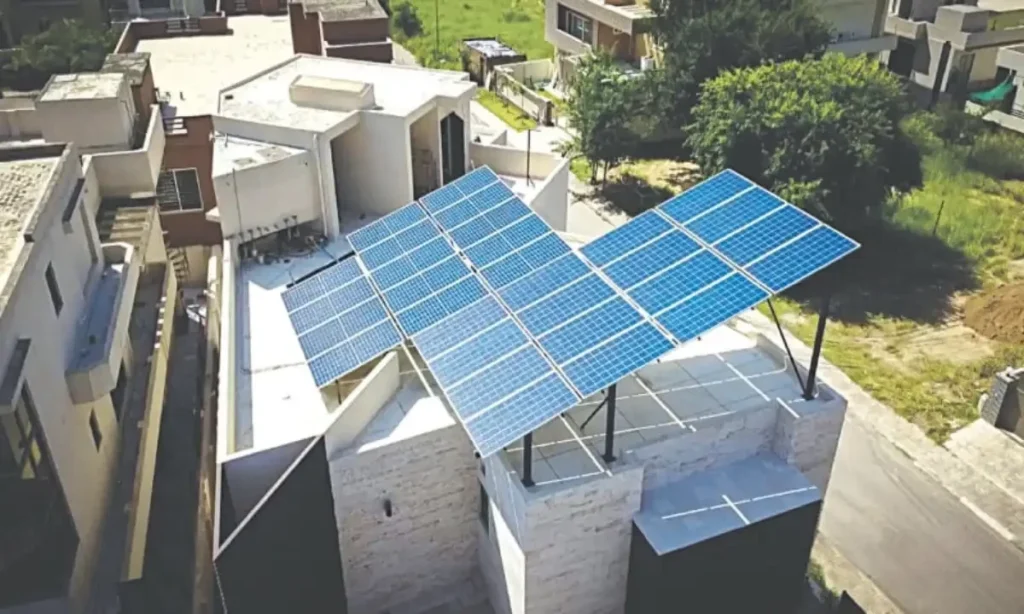The Federal Tax Ombudsman (FTO) has announced a new tax directive, imposing an 18% sales tax on electricity supplied through solar net metering systems across Pakistan. This move aims to address a financial gap estimated at Rs9.8 billion caused by inconsistencies in tax collection from solar power users.
Why Is the Tax Being Imposed?
Under the current tax laws, the Sales Tax Act does not explicitly recognize net metering, which allows solar users to offset their electricity consumption by feeding excess power back into the grid. As a result, the FTO has ruled that sales tax must be applied to the gross electricity supplied, rather than the net amount consumed by the user.
In addition to the sales tax, withholding income tax under Section 235 of the Income Tax Ordinance 2001 will also be applied to the total gross supply value. This means that solar consumers will now have to pay taxes on the full amount of electricity they generate, regardless of net metering adjustments.
Impact on Solar Consumers
This decision will significantly impact solar panel users who rely on net metering to reduce their electricity costs. Many consumers have invested in solar energy to lower their bills and promote clean energy. However, this tax policy might discourage further adoption of solar power due to increased costs.
Compliance and Enforcement
Currently, K-Electric has been complying with this tax structure, ensuring that all necessary taxes are collected from its consumers. However, eleven other distribution companies (DISCOs) have failed to follow the tax regulations, leading to disparities in tax collection across different regions.
To ensure uniform tax enforcement, the Federal Board of Revenue (FBR) has directed its tax commissioners to implement strict compliance measures across all DISCOs, including:
- Faisalabad Electric Supply Company (FESCO)
- Gujranwala Electric Power Company (GEPCO)
- Hazara Electric Supply Company (HAZECO)
- Hyderabad Electric Supply Company (HESCO)
- Islamabad Electric Supply Company (IESCO)
- Lahore Electric Supply Company (LESCO)
- Multan Electric Power Company (MEPCO)
- Peshawar Electric Power Company (PESCO)
- Quetta Electric Supply Company (QESCO)
- Sukkur Electric Power Company (SEPCO)
- Tribal Electric Supply Company (TESCO)
What’s Next for Solar Users?
While this tax policy aims to ensure fair taxation and compliance, it has raised concerns among renewable energy advocates and solar consumers. Industry experts believe that imposing heavy taxes on solar energy could slow down Pakistan’s transition to clean and sustainable power sources.
Consumers are advised to stay updated on any further developments and consult with tax professionals to understand how these changes affect their electricity bills and overall energy savings.



Comments (0)
No comments yet. Be the first to comment!
Leave a Comment